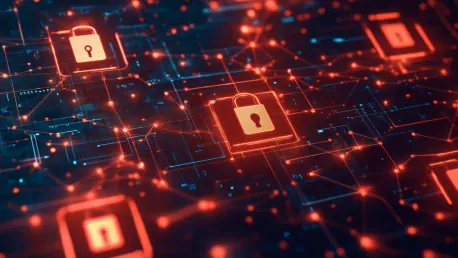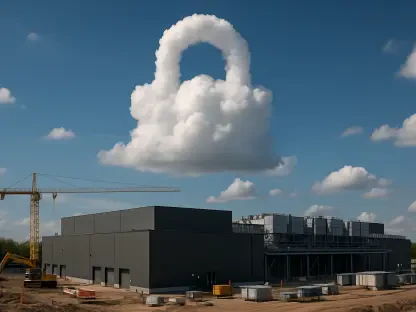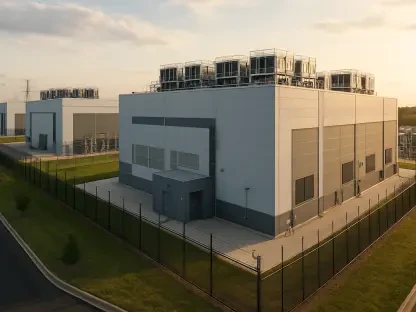In a startling revelation, Dell Technologies has found itself at the center of a serious cybersecurity crisis. Within a single week, the technology giant has reportedly suffered multiple data breaches, exposing vast swathes of sensitive information and casting a glaring spotlight on the vulnerabilities faced by even the most resource-rich corporations. This series of incidents has left employees, stakeholders, and industry experts questioning the integrity and robustness of Dell’s existing cybersecurity protocols.
The Rapid Succession of Breaches
The breaches at Dell have occurred in quick succession, with company insiders revealing that at least two significant incidents took place, with rumors of a potential third breach still under investigation. These cyber attacks compromised user credentials, internal infrastructure data, and sensitive information related to over 10,000 company employees. The rapidity and severity of these breaches underscore the pressing need for robust and responsive cybersecurity measures.
Details of the specific breaches remain scarce, but the fallout has been immediate. Employees and stakeholders are raising serious concerns about the company’s ability to safeguard its digital assets. Internal audits have been triggered to assess the extent of the damage, and initial findings suggest significant lapses in security protocols. This situation places Dell alongside other high-profile companies that have recently encountered similar cybersecurity challenges, emphasizing that no organization is immune to modern cyber threats. As the investigation continues, Dell is under tremendous pressure to not only identify the root cause of these breaches but also implement immediate measures to prevent future incidents.
Challenges of Managing Large Corporate Infrastructures
One of the main issues highlighted by the Dell breaches is the difficulty large corporations face in managing their expansive and complex IT infrastructures. Despite having access to substantial resources, these enterprises often struggle with ensuring consistent security updates and oversight across all departments and systems. Cybersecurity experts point out that as organizations grow, their IT environments become more intricate, leading to potential lapses in security. Different departments often operate in silos, implementing their own SaaS and cloud solutions without centralized governance. This decentralized approach can create significant security gaps, making it easier for cybercriminals to exploit weak points.
For Dell, navigating its multifaceted global operations has proven to be a formidable challenge. Each new breach not only disrupts normal operations but also raises concerns about the overall resilience of their cybersecurity framework. The Dell scenario serves as a case study for other large enterprises, showcasing the inherent risks associated with managing sprawling technological ecosystems. In response, Dell must reevaluate its security strategies, aiming for a more cohesive and unified approach to oversight and management.
SaaS and Cloud Applications: New Frontiers for Cyber Attacks
In recent years, the adoption of SaaS and cloud applications has skyrocketed, driving efficiency and scalability for many organizations. However, this shift has, in turn, created new vulnerabilities. The fragmented oversight and decentralized control associated with these platforms have made them attractive targets for cybercriminals. For Dell, the rapid integration of SaaS and cloud applications across its various departments has contributed to its current predicament. Without centralized control and consistent security measures, the organization has struggled to maintain a cohesive defense strategy. Each department’s independent adoption of these technologies has further complicated the company’s cybersecurity landscape, leading to potential vulnerabilities.
Industry analysts warn that this trend is not unique to Dell. Many large corporations face similar challenges, grappling with the security implications of widespread SaaS and cloud adoption. Balancing the benefits of these technologies with comprehensive security protocols remains a critical concern for businesses worldwide. As companies continue to embrace these digital tools, the challenge will be to implement robust security measures that can keep pace with rapid technological advancements and the increasingly sophisticated tactics of cybercriminals.
Adopting Security Agility from SMBs
One potential solution to the cybersecurity woes plaguing large organizations like Dell is to adopt a more agile security framework, much like those employed by small and medium-sized businesses (SMBs). Unlike their larger counterparts, SMBs can often detect and respond to cyber threats more swiftly due to their streamlined operations and fewer bureaucratic hurdles. Security agility involves continuously monitoring the threat landscape, adapting security measures in real-time, and fostering a culture of rapid response and resilience. For Dell, embracing such a framework could mean consolidating oversight, enhancing cross-departmental communication, and implementing more dynamic threat detection systems.
While the shift towards an agile security framework may require significant changes in organizational culture and processes, the potential benefits are substantial. By borrowing strategies from SMBs, Dell can potentially enhance its ability to mitigate future threats and safeguard its vast data repositories more effectively. Agile security methods also promote a more proactive approach to threat management, enabling organizations to stay ahead of potential risks and address vulnerabilities before they can be exploited.
Global Implications and Rising Cyber Threats
The breaches at Dell are part of a broader trend of increasing cybersecurity incidents affecting major corporations worldwide. In 2024, similar attacks have been reported at Microsoft and Bank of America, signaling a worrying escalation in the sophistication and frequency of cyber attacks. These incidents highlight the global nature of the cybersecurity threat landscape. As businesses continue to digitize and interconnect, they inadvertently expand their attack surfaces, providing more opportunities for cybercriminals. The Dell breaches serve as a stark reminder of the need for continuous investment in cybersecurity, not only to protect individual organizations but also to safeguard the broader digital ecosystem.
With cyber threats evolving rapidly, maintaining robust defenses requires a proactive and dynamic approach. For large corporations, this means not only investing in cutting-edge security technologies but also fostering a culture of vigilance and preparedness. The lessons learned from the Dell breaches could prove invaluable for other organizations striving to navigate the complex and ever-changing world of cybersecurity.
Preparing for Future Threats
Dell Technologies is grappling with a significant cybersecurity crisis after experiencing multiple data breaches in just one week. These breaches have exposed a large amount of sensitive information, bringing to light the vulnerabilities that even highly resourceful companies like Dell can face. The incidents have left employees, stakeholders, and cybersecurity experts questioning the strength and efficacy of Dell’s current cybersecurity measures.
The breaches have not only compromised vast amounts of sensitive data but have also put a serious dent in Dell’s reputation as a leader in the technology industry. Observers are scrutinizing how such a prominent company, presumably equipped with cutting-edge defenses, could fall victim to such attacks. The situation underscores a broader issue within the tech industry, where advanced security measures often fall short against increasingly sophisticated cyber threats.
These events prompt critical reflection on the part of Dell regarding their existing cybersecurity protocols. There’s an urgent need for the company to reassess and fortify its defenses to prevent future breaches. This crisis serves as a stark reminder that no organization is immune to cyber threats, and continuous vigilance is essential in safeguarding sensitive information. As Dell navigates this challenging period, the tech industry watches closely, aware that the lessons learned here will resonate far beyond a single company’s experience.









